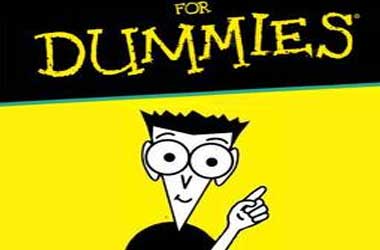The Dummies Guide to Forex Trading
 We are more than aware that many people are very interested in becoming a Forex trader, as there can be some large financial gains and profits to be made by trading currencies.
We are more than aware that many people are very interested in becoming a Forex trader, as there can be some large financial gains and profits to be made by trading currencies.
However, when you first show an interest in trading Forex online you are often going to be bombarded with information and could be put off doing so, as it may appear to be a very complicated environment!
It is with that in mind that we have put together the following Forex for dummies guide below and we will do our very best to explain to you, in plain English, just how you can become a Forex trader online.
Be aware that throughout our website we do have several additional Forex trading guides and articles that are going to be of interest to any first time and inexperienced trader.
So once you have read through this guide do have a good look around, for when you do we are more than confident you will soon understand how you can sign up and become any online Forex trader in no time.
Frequently Asked Questions
-
What Is Forex Trading
A Forex trader is simply going to be looking to take advantage of the fluctuations in the value of any different currencies of the world.
When you choose to become a Forex trader you simply have to select two currencies and predict which of those two currencies is going to increase in value against the other one and pair them up in one single trade.
You then simply need to choose how much you wish to invest on any one single Forex trade you make and then pair up your chosen two currencies. If at the expiry of the trade the currency you have selected as the one that will increase in value, does increase in value then you have placed a winning trade and will be paid your invested amount back along with the profit for that trade.
-
How Much Can I Make?
One question that a first time Forex trader will be looking for the answer to is just how much they can make on any winning Forex trade they place.
The amount you can make on every single Forex trade is determined by just two things, one is the amount of money you wager on that trade, and the other is the percentage profit the Broker at which you have placed that trade at is offering you.When you take a look through the possible currency pairings available at any Forex Broker you will find a figure presented as a percentage. So for example if the pairing you have chosen to base your Forex trade around has a payout percentage of let’s say 81%, then if your chosen currency increases in value at the expiry time of your trade for every 100.00 you have placed on that trade you will be paid out 181.00.
That payout is your original 100.00 investment along with an 81.00 profit. Be aware however different Forex traders will offer different payout amounts. With that in mind do shop around and compare the payouts you will be offered by several of our featured Brokers, as they can and do vary.
-
How do I Place a Forex Trade?
If you are wondering just how you actually place Forex trades, then that is actually one of the easiest things you can do, for by signing up to a Forex Broker you will then be able to log into their web browser based trading platform.
You sign in via their respective website and once logged in you can then peruse through all of their available currency pairing options and also see just how much profit can be made one each of them.
-
Do I Have to Trade for Real Money?
You are not going to be obliged to have to start placing Forex trades for real money whilst you are still finding you feet so to speak. For all of our featured Forex Brokers will allow you to sign up and utilize a demo trading account.
By opening up such an account you can then use demo trading credits to place a range of trades in a real money trading environment, but without any risks attached to doing so.
In fact if you are interested in testing out a Forex trading platform and placing a range of no risk Forex trades then do consider utilizing a demo trading account, by doing so it will not take you very long to fully master how to place all manner of different Forex trades.

